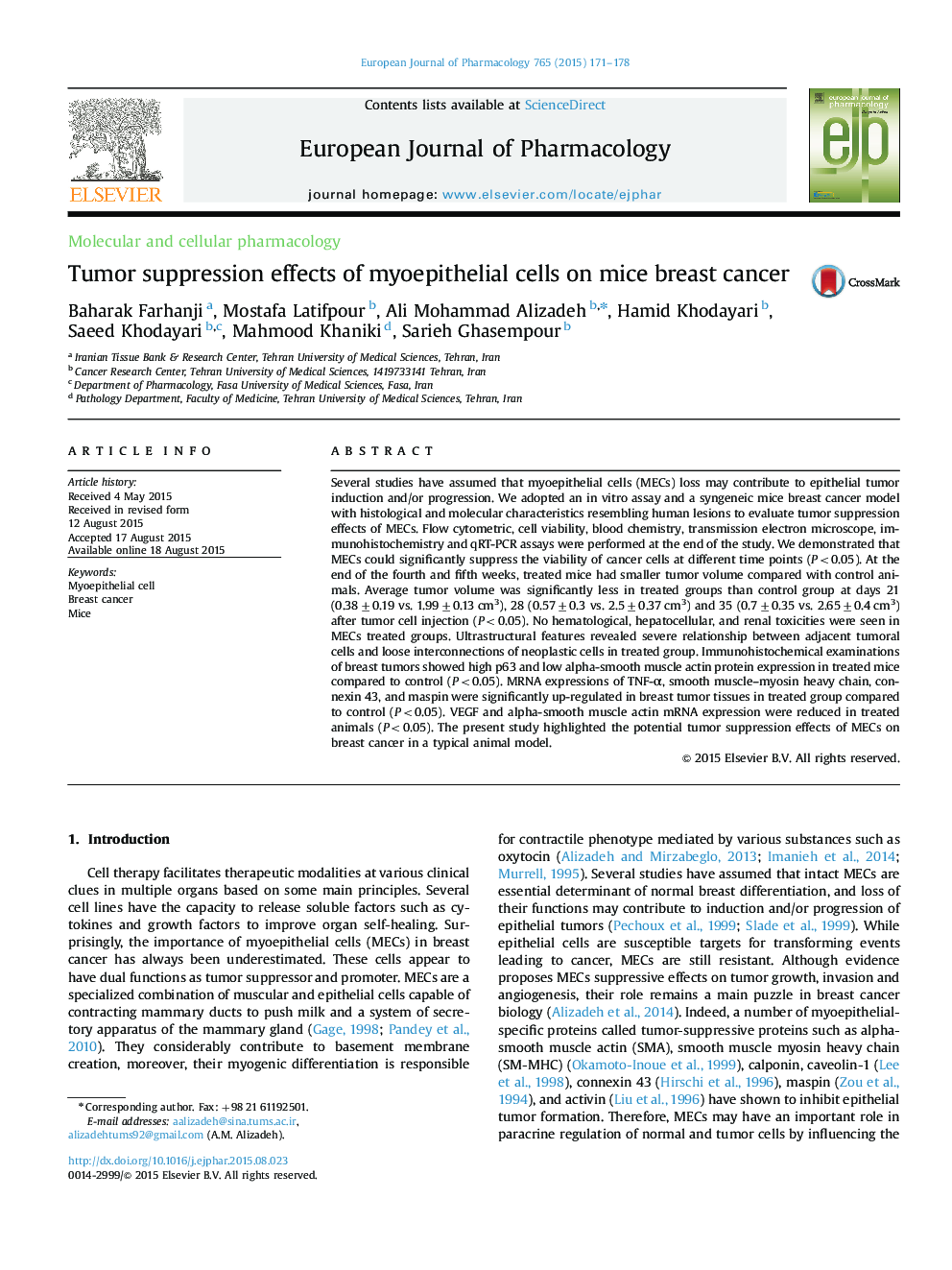| Article ID | Journal | Published Year | Pages | File Type |
|---|---|---|---|---|
| 5826867 | European Journal of Pharmacology | 2015 | 8 Pages |
Several studies have assumed that myoepithelial cells (MECs) loss may contribute to epithelial tumor induction and/or progression. We adopted an in vitro assay and a syngeneic mice breast cancer model with histological and molecular characteristics resembling human lesions to evaluate tumor suppression effects of MECs. Flow cytometric, cell viability, blood chemistry, transmission electron microscope, immunohistochemistry and qRT-PCR assays were performed at the end of the study. We demonstrated that MECs could significantly suppress the viability of cancer cells at different time points (P<0.05). At the end of the fourth and fifth weeks, treated mice had smaller tumor volume compared with control animals. Average tumor volume was significantly less in treated groups than control group at days 21 (0.38±0.19 vs. 1.99±0.13 cm3), 28 (0.57±0.3 vs. 2.5±0.37 cm3) and 35 (0.7±0.35 vs. 2.65±0.4 cm3) after tumor cell injection (P<0.05). No hematological, hepatocellular, and renal toxicities were seen in MECs treated groups. Ultrastructural features revealed severe relationship between adjacent tumoral cells and loose interconnections of neoplastic cells in treated group. Immunohistochemical examinations of breast tumors showed high p63 and low alpha-smooth muscle actin protein expression in treated mice compared to control (P<0.05). MRNA expressions of TNF-α, smooth muscle-myosin heavy chain, connexin 43, and maspin were significantly up-regulated in breast tumor tissues in treated group compared to control (P<0.05). VEGF and alpha-smooth muscle actin mRNA expression were reduced in treated animals (P<0.05). The present study highlighted the potential tumor suppression effects of MECs on breast cancer in a typical animal model.
